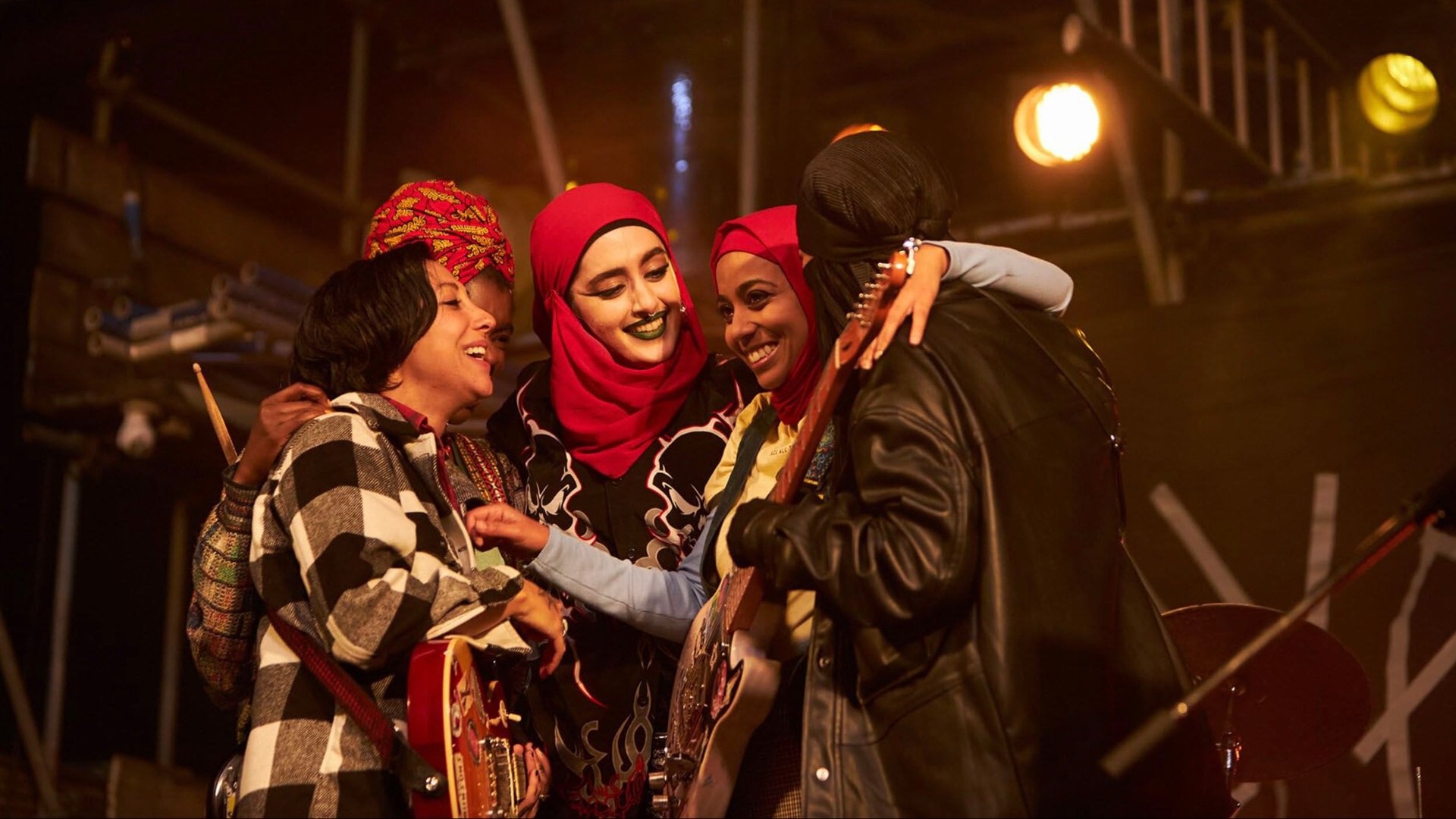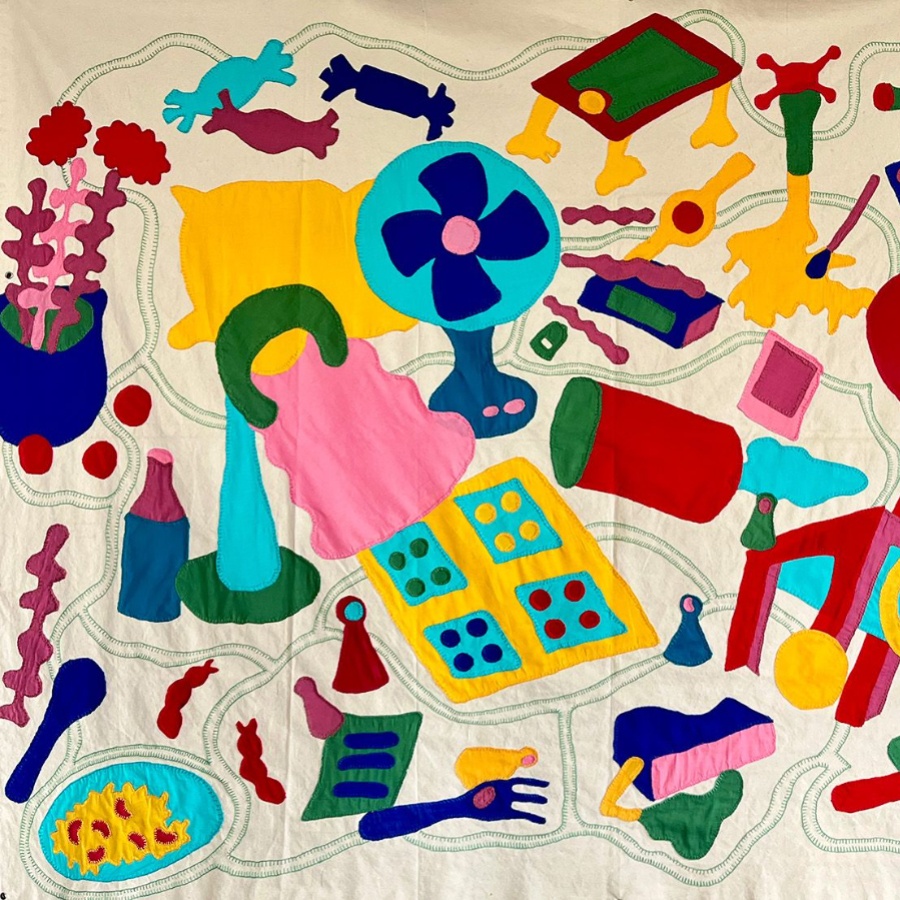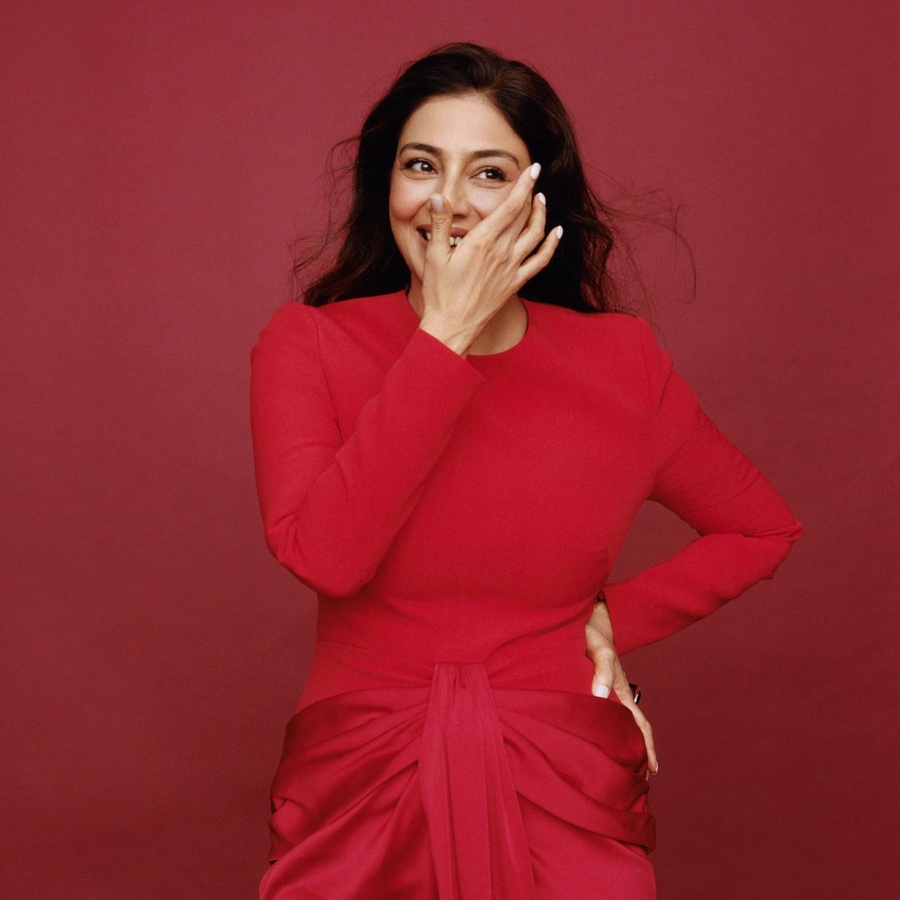It’s taken three years for British TV sitcom We Are Lady Parts to release its sophomore effort, but the all-female, all-Muslim punk band has not lost any of its bite since its debut. This season, as the band embarks on a “magical summer” of touring, its main characters are all on variously complicated paths of finding themselves, with the exception of Amina, who seems to have found herself already, with an unabashed embrace of her “villain era”.
Forget whatever sinister connotations the term brings to mind, because its actual meaning couldn’t be farther from that. Villian Era as a phrase gained traction on social media apps like TikTok in early 2022 and is used to describe a person’s decision to put themselves first, assert healthy boundaries, and begin to live their life on their own terms rather than cater to society’s expectations. The term applies especially to those (like the show’s complaisant lead, Amina) who are characterised by their people-pleasing tendencies and suddenly switch. So it’s not about being bad, necessarily, but about abandoning the need to let anyone except yourself dictate the terms of your life.
“I think I’m in my villain era,” shares the show’s creator/writer/director Nida Manzoor, pointing to how Amina’s character arc this season was a case of art imitating life. “I made the show I want to make. With Season 1, I was so riddled with self-doubt and anxiety about coming out to the world and their reaction. Now I’ve freed myself and am not as worried about how people are going to respond.”
While people pleasing may be healthy in small doses, it seems women are particularly likely to suffer from its adverse effects, which is hardly surprising given societal expectations on women to be the default nurturers and caregivers. For them, the simple decision to say no to something can feel like a radical act, because it requires dismantling hardwired ideas about how to behave with people. It’s exhausting, really—to worry about inconveniencing/disappointing/upsetting others, rather than saying yes to what you’d like for a change. You may think that people pleasers are the ones who get ahead at the workplace, but as this psychologist points out, their exhausting trait is likely to cause them to burn out faster.

All of which is to say that if you are a woman reading this while mentally cataloguing all the times you have felt emotionally exhausted from care work or have regretted signing up for extra tasks in the office or overcommitted to a friend out of kindness, this just may be your sign to enter your villain era.
Perhaps the best, albeit trickiest, part of this is that it identifies the toxic people in your life—those most likely to brand you a villain for just looking out for yourself—so start by weeding them out. It’s not easy, but it may just be the best way to find the healthiest version of yourself, while also having some fun along the way.
So how exactly does one enter their villain era? Like all important things, it starts with making a list—take inventory of all the things in your life that leave you dissatisfied, and see how you can address them. Despite the drama that the term “villain era” can conjure, it also might be best to start slow instead of trying to completely overhaul your communication style overnight, so practise the art of saying “no.” If all this feels like a 180-degree from your normal behaviour, start with trying to ask for what you want and not shying away from putting your needs front and centre.
“We don’t have to be always apologetic and super polite, instead we can just be free to be who we want to,” said actor Anjana Vasan, who plays Amina in We Are Lady Parts, on entering her own real-life villain era. The British sitcom is far from the first piece of art to explore the embrace of the villain era through its protagonist. Writers like Ottessa Moshfegh have made a career of writing prickly female characters who are defined by their resistance to conformity, such as the titular character of her novel Eileen. For a wider lens, Anna Bogutskaya’s Unlikable Female Characters pushes against pop culture’s favourite archetypes, advocating a depiction of women that explores their multi-dimensionality instead of hinging on likeability. Even films from as early as 2001, such as Legally Blonde, are driven with a lead who gets into her villain era when she applies to law school despite being underestimated by everyone around her. In music, Megan Thee Stallion’s blockbuster hit ‘Hot Girl Summer’ as well as Billie Eilish’s ‘You Should See Me In A Crown’ are the affirmations you need to hear (or browse through one of the many ‘villain era’ playlists currently populating Spotify).
Whether you’re a fan Manzoor’s show, her leading quintet or the absolute bangers that make up the song list—Malala and Meera Syal will agree—it's time to take a page out of Amina’s book and usher in your villain era. After all, what could be more punk than pure independence?
We Are Lady Parts season 2 is available on JioCinema.




